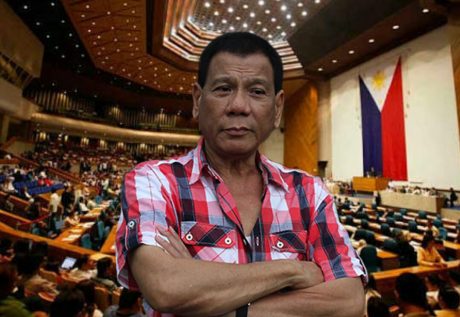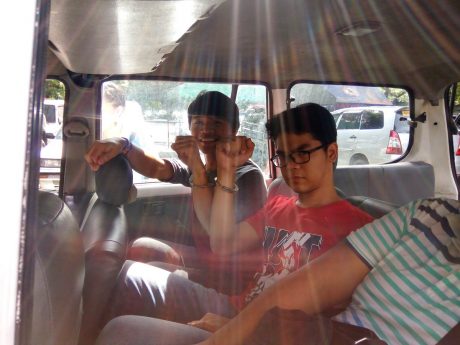
The overwhelming thumbs-up given by Philippine Congress to the extension of Martial Law demonstrates the immense political capital enjoyed by the administration of Philippine President Rodrigo Duterte. And, once again, the ineptness applied by the Opposition in its efforts to counteract the trajectory Duterte has thus far put the country in was glaringly evident. In politics, particularly in a “democracy”, popularity is the only true and objective scorekeeper. The agendas of popular ideas and popular people succeed and those of the obscure languish. That’s just the way things are.
So far, three key pillars of traditional Opposition propaganda used by his critics have fallen into obsolescence in this regard: (1) hero-cum-martyr rhetoric, (2) freedom as be-all-end-all, and (3) the “people’s will”.
The way a “flash protest” perpetrated by a handful of misguided “activists” during a special joint session of Congress to discuss the martial law extension failed to move the general Filipino public and, instead, attracted ridicule handily illustrates the fall from grace of these once-lofty concepts. Despite all the traditional “activist” ingredients — dramatics, noise, and defiance — there was none of the expected outpouring of solidarity; nothing that could shake the confidence of legislators that they enjoy the general backing of their respective constituents in the vote they represent in this exercise.
Indeed, only 60 “youth activists” mostly representing the usual cadre of rally-happy leftist groups reportedly came to show support for these misguided youths now being held in Camp Karingal in Quezon City. The rather infantile logic with which they defend the actions of their “colleagues” and demand their release was summarised in the following statement by the “leader” of this protest rally…
Einstein Recedes, Anakbayan secretary general, said the youth leaders should be freed, since they were only using their freedom to express their disapproval of the military rule.He noted that if the youth leaders brought banners in support of martial law instead, they would not have been be escorted out of the plenary hall and arrested.
Nothing in what Einstein (note the ironic name) said above addresses the actual basis of their arrest…
[…] the eight rallyists had been taken to the Quezon City Prosecutor’s Office to undergo inquest proceedings. They face charges for violation of Article 144 of the Revised Penal Code, or disturbance of proceedings.
Article 144 states: “Disturbance of proceedings. — The penalty of arresto mayor or a fine from 200 to 1,000 pesos shall be imposed upon any person who disturbs the meetings of the National Assembly (Congress of the Philippines) or of any of its committees or subcommittees, constitutional commissions or committees or divisions thereof, or of any provincial board or city or municipal council or board, or in the presence of any such bodies should behave in such manner as to interrupt its proceedings or to impair the respect due it. (Reinstated by E.O. No. 187).”

Stunts like these now consistently fail to impress anyone.
In short, the Opposition as characterised by liberal and left-leaning elements of the political spectrum had all but lost the Philippines and are in dire need of redemption. That redemption will not come easy considering no less than a thorough overhaul of its noisiest brands, the “Yellow” liberals and the “Red” commies, is required.
In the mean time, while Opposition remains a flaccid force at best, the way has definitely been paved for the Duterte administration to push further its reform agenda consistent in both content and approach to all of what Duterte promised during his campaign. Whilst the “experts” may debate the degree to which he has so far delivered and how promising success looks like over the coming years, the key to the future of Duterte’s “change” agenda is in remaining consistent and transparent. In a democracy, engagement with the people in an honest manner sustains the political capital — a.k.a. popularity— needed to lead people down a difficult path that challenges an entrenched status quo. There is no better way to remain consistent and transparent by simply being honest.

No comments:
Post a Comment